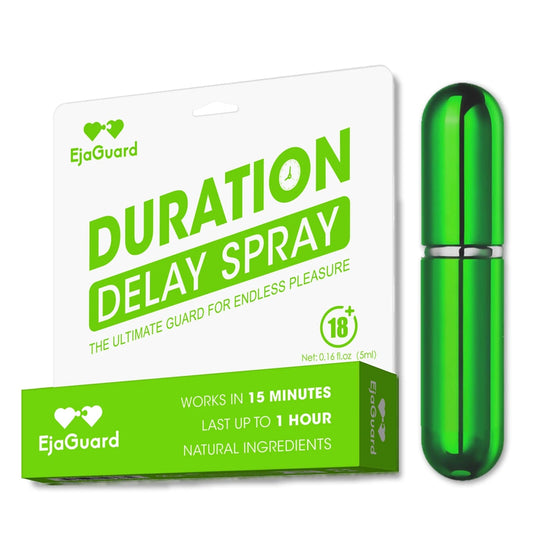Introduction
In today's fast-paced dating culture, many people find themselves in a confusing kind of relationship that’s not quite a friendship, not quite a committed relationship. This grey area is called a situationship. Whether it's sparked by mutual attraction, emotional connection, or simply convenience, these romantic or sexual entanglements have become increasingly common — especially in the age of dating apps and 'keeping things casual.'
But situationships, while sometimes fun at first, can leave you feeling emotionally drained, anxious, and uncertain. They often lack clear boundaries, commitment, or direction — all of which can impact your mental health.

Let’s break it down: what is a situationship, how do you know if you're in one, and what should you do about it?
What Is a Situationship?
A situationship is a romantic or sexual relationship that exists without the formal definition of a committed relationship. There’s usually no clear agreement on where things are headed. People in situationships might enjoy spending time together, even feel an emotional connection, but they haven’t had a conversation to define the relationship — also known as the 'DTR talk.'
Unlike dating with the intention of a long-term or longer-serving commitment, a situationship often involves blurred lines and a lack of emotional clarity. It can feel like you're stuck in relationship limbo.
To enhance your romantic experience and ensure emotional connection, consider products like EjaGuard Orgasm Gel for a more satisfying and intimate connection.
Situationship vs. Committed Relationship
Let’s break down the key differences:
-
Situationship:
-
No labels or DTR conversation
-
Lack of commitment
-
Plans are spontaneous, not intentional
-
Prioritizes physical or casual emotional connection
-
No long-term goals as a couple
-
-
Committed Relationship:
-
Clearly defined status and expectations
-
Shared values and long-term plans
-
Open communication about emotional needs
-
Mutual emotional support and trust
-
If your partner avoids serious conversations, rarely calls (especially via phone call or face to face), or only contacts you when it’s convenient — you’re likely in a situationship.
For healthier intimate experiences and sexual well-being, explore EjaGuard Delay Spray designed to prolong pleasure and support your needs.

Why We Fall Into Situationships
Situationships often start because both people enjoy spending time together, and things just happen. But there are deeper reasons too:
-
Fear of commitment: Some people aren't ready for a longer-serving relationship.
-
Emotional unavailability: It’s easier to stay surface-level.
-
Past trauma: Someone with a history of toxic relationships may feel safer keeping things undefined.
-
Attachment style: Anxious or avoidant attachment styles can drive people into situationships without realizing it.
-
Friends with benefits confusion: A casual fling can evolve into a situationship when feelings develop on one side.
If you're looking for emotional clarity or support, check out EjaGuard Lubricants for products that foster deeper intimacy and connection.
The Signs: Red Flags of a Situationship
Wondering if you're in a situationship? Look out for these red flags:
-
Lack of commitment — There’s no clarity on what you are.
-
No DTR conversation — Every attempt to define the relationship is dodged.
-
Inconsistent communication — You don’t get regular phone calls or face-to-face time.
-
Plans are last minute — You’re a backup plan, not a priority.
-
Emotional connection feels one-sided — You're investing more than they are.
-
You feel anxious — The uncertainty leaves you stressed and second-guessing.
If any of these sound familiar, you're probably in a situationship.
How Situationships Affect Mental Health
While situationships can feel exciting at first, they can also be emotionally exhausting. The lack of commitment and clarity can affect your mental health in the following ways:
-
Increased anxiety from not knowing where you stand
-
Low self-esteem due to one-sided emotional investment
-
Overthinking and rumination, especially after texts or hangouts
-
Feeling isolated because the relationship can’t be openly discussed like a committed relationship
A healthy romantic relationship provides emotional security. A situationship often leaves you feeling confused and undervalued.

Situationships and Attachment Style
Your attachment style plays a big role in why you might enter or stay in a situationship.
-
Anxious attachment: You crave closeness and fear abandonment. A situationship makes you feel anxious because there’s no clear commitment, yet you hold on in hopes of something deeper.
-
Avoidant attachment: You fear vulnerability and avoid emotional closeness. A situationship gives you intimacy without obligation.
-
Secure attachment: You value emotional connection and clarity. You’re less likely to tolerate unclear relationships for long.
Understanding your attachment style can help you recognize patterns — and make healthier choices.
Can a Situationship Become a Long-Term Relationship?
Yes, some situationships can evolve into long-term relationships — but it requires effort and honesty from both people.
Things to consider:
-
Are both parties willing to communicate openly?
-
Is there mutual emotional connection beyond physical intimacy?
-
Is one person pushing for more while the other avoids commitment?
A situationship can’t transform unless both partners want to grow it into a committed relationship.

How to DTR (Define the Relationship)
So you’re ready to define things? Here’s how to have the DTR talk:
-
Pick the right time — Ideally face to face or on a phone call when you're both relaxed.
-
Be clear about your needs — Say what kind of relationship you're looking for.
-
Ask where they stand — Don't just talk about your side. Get their input too.
-
Listen closely — Watch for vague language or avoidance.
-
Set boundaries — If they don’t want the same thing, decide what’s best for your emotional health.
Remember: It’s better to have clarity than to stay stuck in uncertainty.
How to End a Situationship (Without Feeling Like the Bad Guy)
If you’ve realized your situationship isn’t serving you, here’s how to end it:
-
Acknowledge your feelings: You don’t need a reason beyond 'this isn’t working for me.'
-
Keep it honest, but kind: Whether in a phone call or face to face, say you’re looking for something long term and this doesn’t align.
-
Don’t ghost: Respect the emotional connection that existed.
-
Prepare for pushback: They might try to keep things casual. Hold your boundary.
-
Focus on closure: Don’t drag it out. Say your piece and step away.
Ending a situationship doesn’t make you the bad guy. It makes you someone who values your emotional well-being.

Is 'Summer Situationship Full Movie' More Real Than We Think?
You’ve probably seen people searching for 'Summer Situationship Full Movie' — and that’s no accident. Pop culture reflects real emotional experiences.
Whether it’s a TikTok trend, indie film, or streaming drama, we’re drawn to the messy, chaotic energy of summer romances and undefined love stories. But while these fictional stories wrap up neatly, real-life situationships rarely offer satisfying endings without honest conversations and reflection.
If anything, this growing media trend highlights just how many of us are dealing with emotional ambiguity.
Conclusion: Know What You Want, and Don’t Settle
A situationship can feel thrilling — until it doesn’t. When the emotional connection isn’t backed by commitment, you’re left vulnerable to disappointment, confusion, and self-doubt. Understanding what a situationship is, recognizing red flags, and knowing your own attachment style can help you make more conscious relationship choices.
Whether you're ready to DTR, walk away, or explore something new, remember: you deserve clarity, honesty, and a partner who meets you with the same energy. Don’t settle for halfway love. A committed relationship might require more effort — but it’s worth it when you want something real, long-term, and fulfilling.
For additional support on emotional and physical wellness, check out EjaGuard’s full range of sex toys and lingerie to enhance your intimate experiences.
 Buy Now
Buy Now



